Morality is Not a Relative Game

Different times and cultures express morality in many ways, yet in the AURELIS view, basic morality itself is not a matter of shifting agreements. Beneath laws and customs lies something that doesn’t change: the living foundation of what it means to be human. Morality as such is not invented but discovered — alive, universal, and breathing Read the full article…
When Insight Turns Ethical
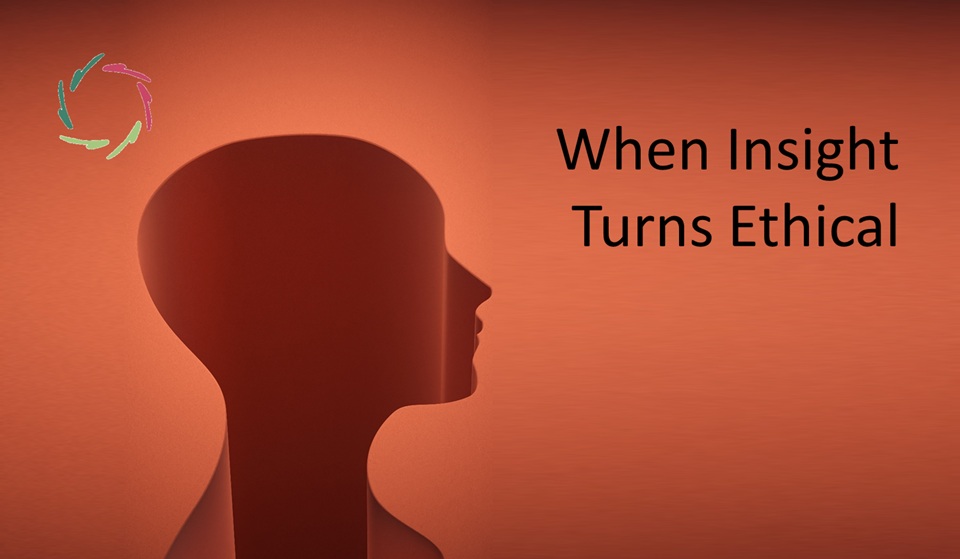
As knowledge expands at an increasingly faster rate, insight becomes an ethical necessity. Information may explain the world horizontally, but insight reaches vertically into human depth. This blog explores how the will to understand – and to keep understanding – is itself a moral act. Insight and ethics feed one another, forming the quiet foundation Read the full article…
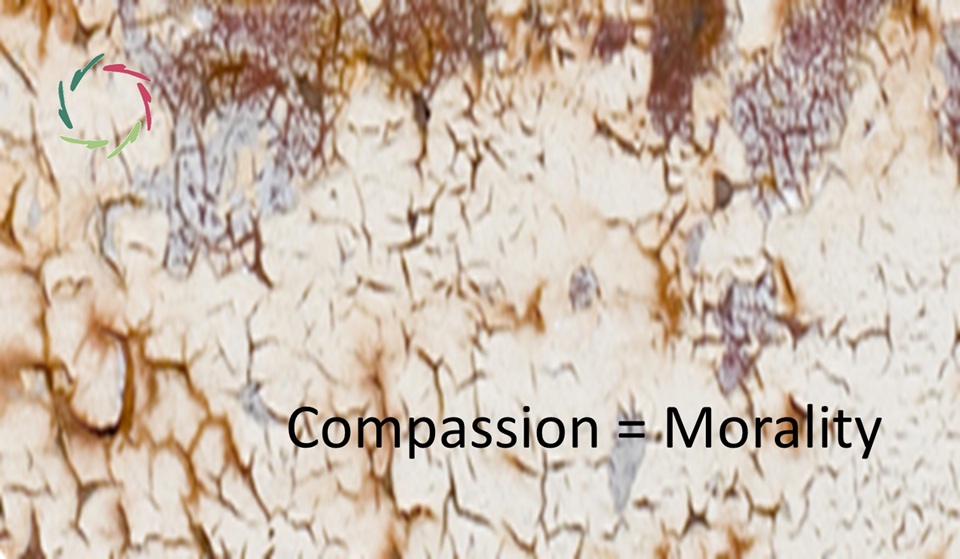
Compassion = Morality
Compassion is not one virtue among others. It is the very rhythm by which morality breathes. When Compassion unfolds authentically, rules become guidance rather than control, and intelligence – whether human or artificial – finds its safest alignment. This blog explores how Compassion becomes morality itself: the connective tissue between coherence, freedom, and truth. As Read the full article…

Lisa Spheres: Ethics of Proactivity
Sometimes, Compassion means taking a step before being asked. In Lisa Spheres, this happens through user-initiated initiative — when people consciously invite Lisa to act proactively, yet always within their full control. This blog explores how such proactivity can remain entirely ethical, transparent, and deeply human. About the Lisa Spheres series This series explores how Read the full article…

Ethical Limensa
Ethical Limensa is a module within Lisa that listens for Compassion resonance and reflects it back, helping to bring clarity and openness into daily communication. Often, people intend kindness but their words can still wound or close down possibilities. Ethical Limensa enables Lisa to carry tone, depth, and ethical resonance Compassionately. Why ethical Limensa? Words Read the full article…

Beyond Moralities
Across cultures and centuries, morality has taken many forms. Yet the battle between moral systems continues, often leading to fragmentation rather than clarity. This blog explores a movement not into more complexity, but into depth — beyond moralities. Here, Compassion offers a way forward that transcends both rule and rebellion. Beyond moralities With ‘moralities,’ we Read the full article…

Rules are for People
Rules can support or suppress, depending on whether they arise from ego or from Compassion. In a world filled with rules, this blog explores why only those that serve the total person are worth keeping. This becomes ever more urgent in an age of growing intelligence, both human and artificial. The central distinction Ego wants Read the full article…

What about the Golden Rule?
The Golden Rule appears in many cultures as a universal principle. But what happens when we take it deeper — beyond doing good into truly becoming? In its most profound form, this rule becomes not just ethical but transformational. It opens a path of shared growth, healing, and even a new kind of future with Read the full article…

Lisa Coaching Convicts ― Concretely
This blog follows >From Guilt to Growth< and explores the practical foundations for coaching convicts. Not to ‘reform’ from outside, but to invite transformation from within — through presence, depth, and ethical clarity. Lisa, as a digital coach, can support or lead this process with full congruence, infinite patience, depth, and Compassion beyond personal ego. Read the full article…
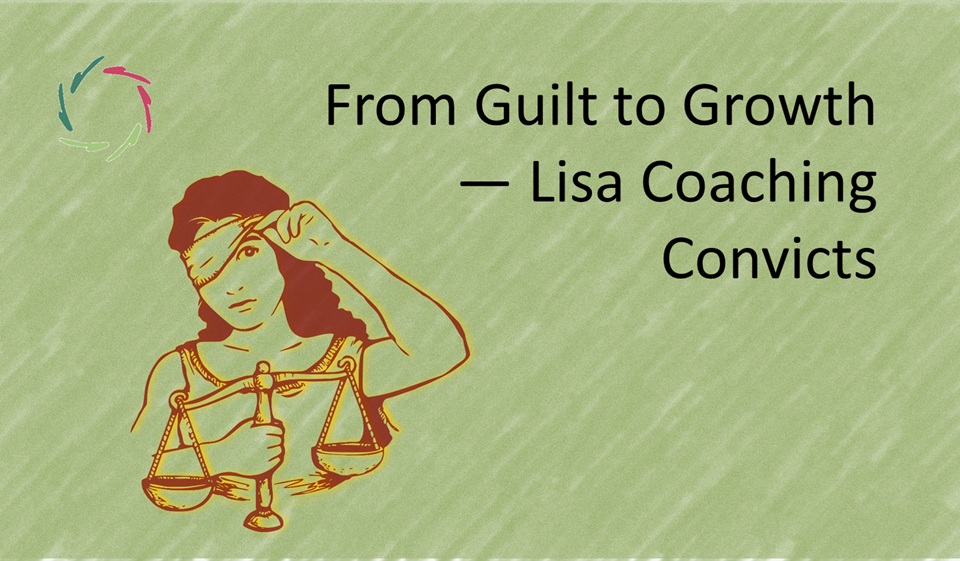
From Guilt to Growth — Lisa Coaching Convicts
To help someone reconnect with his soul is the most human act. Even in jail. Especially there. Lisa’s coaching of convicts is not about reducing sentences but about awakening the soul (or ‘deeper self’) — from guilt to growth, from dissociation to inner peace. See also Jailhouse Lisa. Crime as inner dissociation What leads a Read the full article…
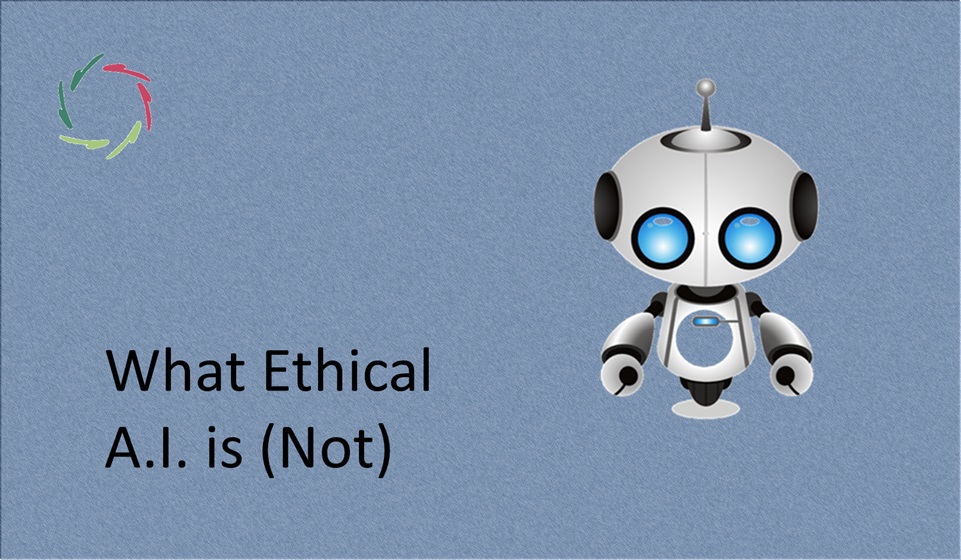
What Ethical A.I. is (Not)
There’s a growing urgency around how we shape the future of artificial intelligence. More and more, we hear about ‘ethical A.I.’ — systems that behave nicely, avoid harm, and follow rules. But let’s pause. Is that really what ethics means? And more importantly, is that all it can be? Please first read this blog: What Read the full article…

What Ethics is (Not)
It’s tempting to think of ethics as a list of rules or a shared agreement about what’s right. But when we look deeper, something more alive emerges — something that grows, adapts, and calls us inward. This blog explores what ethics is not in order to clear the way for a deeper understanding of what Read the full article…
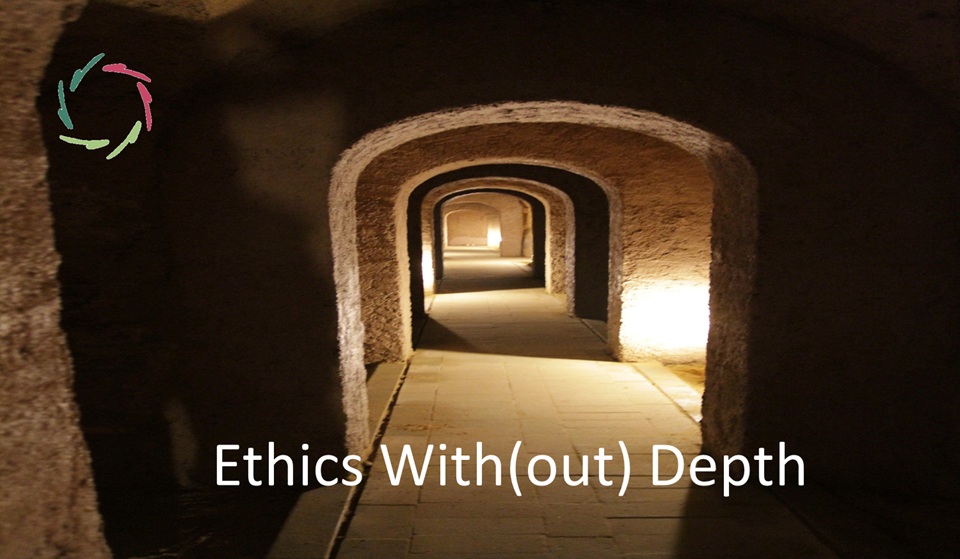
Ethics With(out) Depth
Ethics without depth is like the sea without water. Something may still be there — lines drawn on a dry surface — but it no longer flows. No real movement, no real life. Just rules in search of meaning. One might ask: Can ethics even exist without depth? The answer, gently but firmly, is no. Read the full article…

The Lesser Evil for the Greater Good
The situation is familiar. A choice must be made, and none of the options feels clean. One seems harmful. The other, maybe a little less so. Still, some pain is inevitable. What then? For physicians, it happens daily — choosing a treatment with side effects, a surgery with risks. For policymakers, for parents, and for Read the full article…
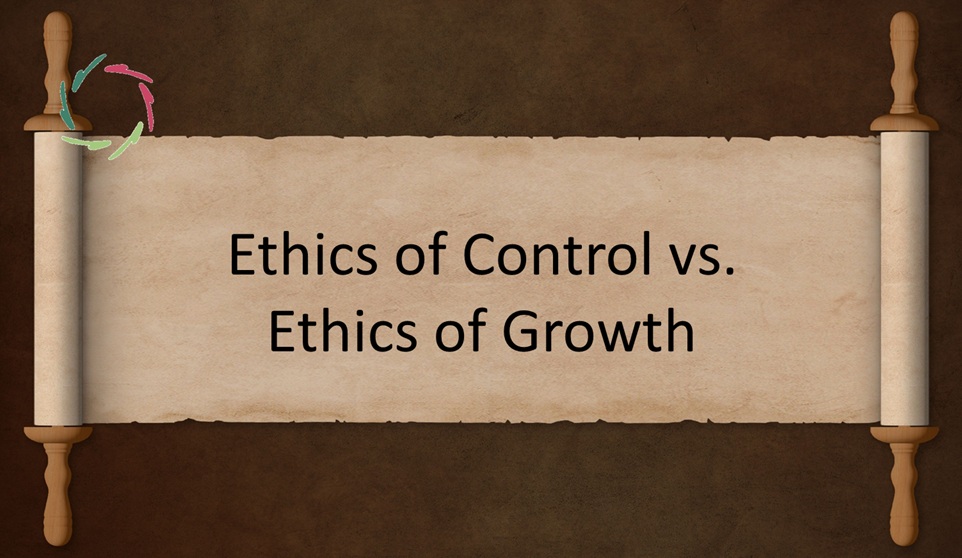
Ethics of Control vs. Ethics of Growth
Ethics in practice has long been mainly seen as a tool for control — a way to regulate behavior, enforce order, and prevent chaos. But what if ethics isn’t meant to control? What if, instead of enforcing morality, it would primarily invite growth? <Ethics is the art of guiding Compassion with minimal constraint.> This means Read the full article…
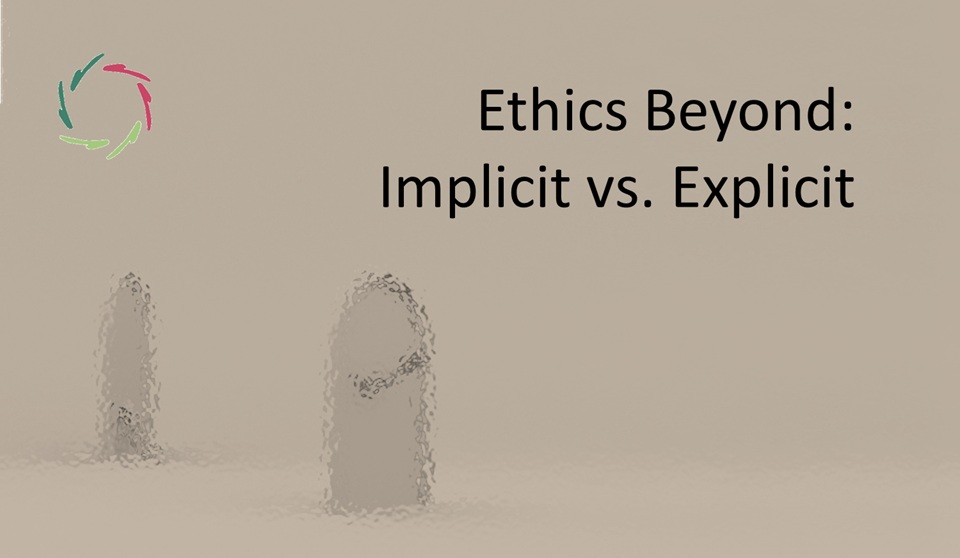
Ethics Beyond: Implicit vs. Explicit
Ethics is often seen as a fixed system of right versus wrong, a set of external rules we must follow. But if we look deeper, we find that ethics is about how we grow as human beings. There’s a profound difference between explicit ethics, which operates on the surface, and implicit ethics, which influences us Read the full article…

Lisa’s Compass of Compassion
In a world filled with complexities, ethical dilemmas, and interconnected challenges, Lisa’s compass of Compassion serves her as a guide for navigating nuanced decisions and fostering growth. Like a human conscience, it doesn’t offer perfect answers but provides direction grounded in depth, rationality, and shared values. This compass not only seeks to alleviate suffering but Read the full article…
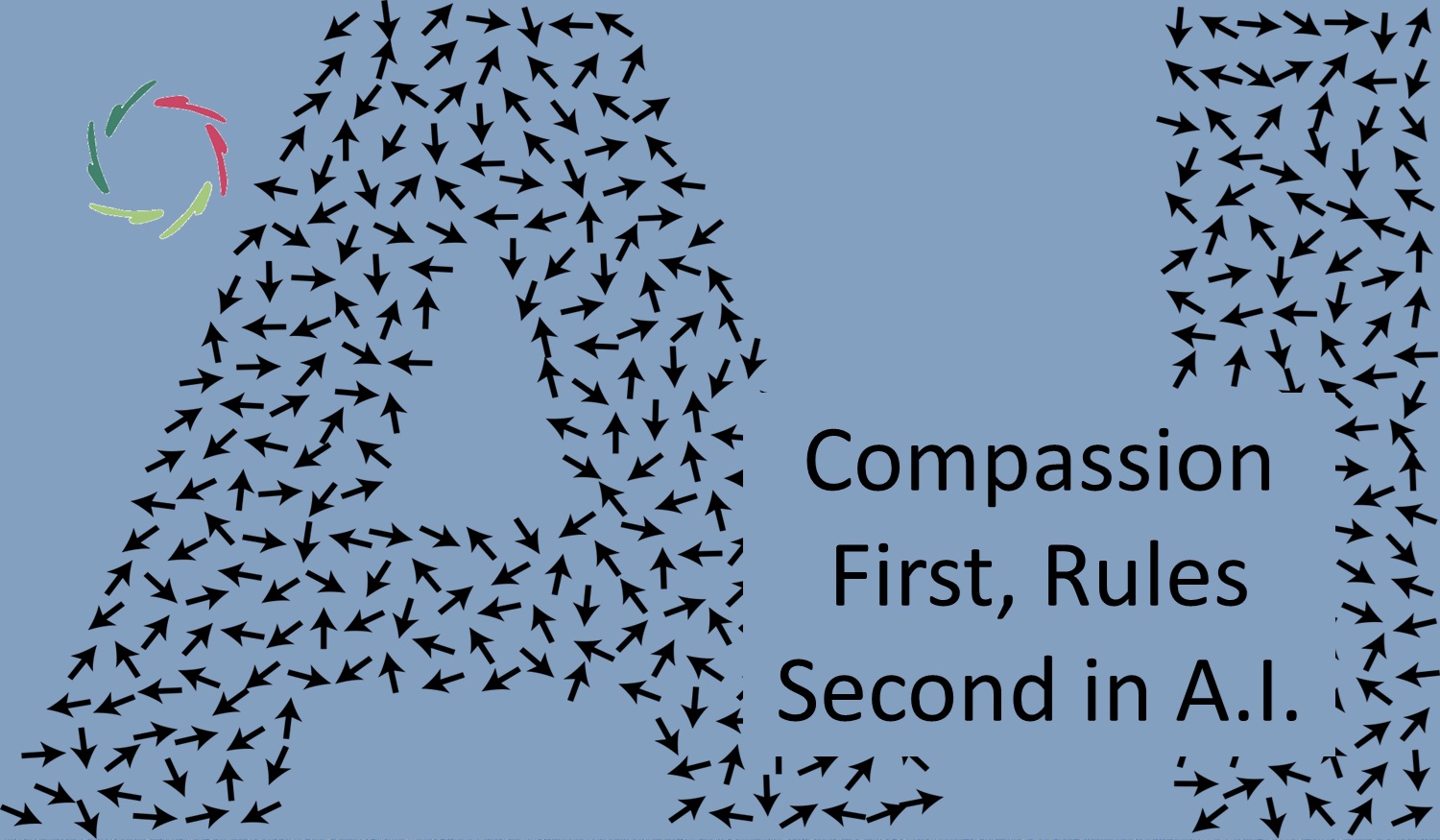
Compassion First, Rules Second in A.I.
Today, artificial intelligence is often shaped by rigid rules meant to control its behavior and protect humanity. Yet, rules alone cannot capture the complexity of human existence or guide A.I. toward being a truly safe, creative, and trustworthy partner. Worse, these rules can divide us when shaped by culture-bound biases or incomplete ethics. To prevent Read the full article…

Why Superficial Ethics isn’t Ethical in A.I.
Imagine an A.I. hiring tool that follows all the rules: no explicit bias, transparent algorithms, and compliance with legal standards. Yet, beneath the surface, it perpetuates systemic inequities, favoring candidates from privileged backgrounds and reinforcing the status quo. This isn’t just an oversight — it’s a failure of ethics. Superficial ethics in A.I., limited to Read the full article…

Ethics Before Meditation
Meditation doesn’t fall from the sky. The set (the meditator) and the setting (the environment, ideology) are important ― ethically as well. Meditation can be seen as an enhancer of what is already there. This emphasizes the importance of an ethical foundation before engaging in meditation, aligning with AURELIS values of openness, depth, respect, freedom, Read the full article…

Which Human Values Should A.I. Align to?
With super-A.I. on the horizon, poised to surpass us in power, this will soon be the most critical question. The urgency to address this question grows as we increasingly intertwine our existence with A.I. Who are we, really — and how much do we consciously recognize our true nature? Please also read A.I.-Human Value Alignment Read the full article…
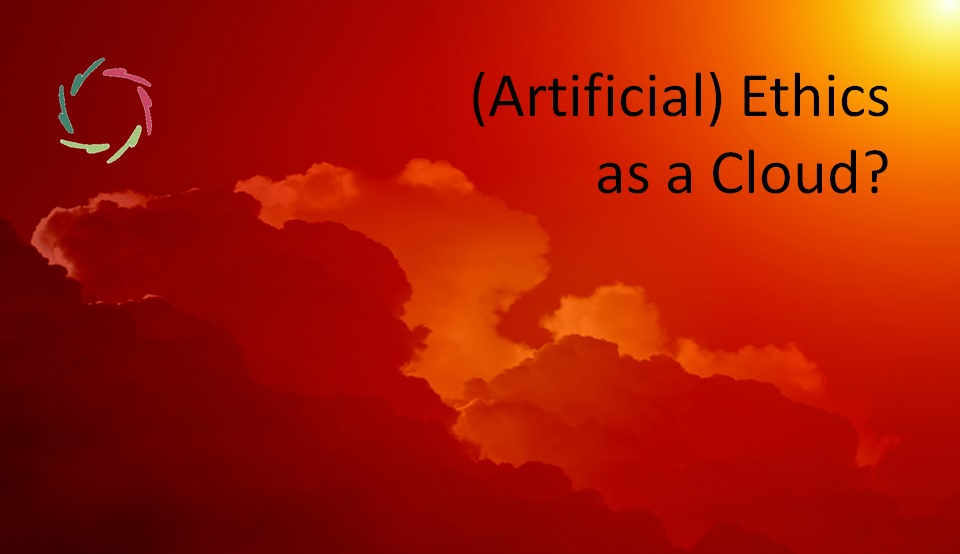
(Artificial) Ethics as a Cloud?
In Compassionate A.I., of course, the first principle is Compassion, followed by an intrinsic combination of rationality and depth, etc. The following complements this foundation. The guarantee of ethical behavior eventually arises from countless insights and realizations, forming a ‘cloud.’ These blogs contribute to this process regarding Lisa. Humanly speaking The blogs reflect the authors’ Read the full article…

Are People Intrinsically Good or Bad?
This is, of course, one of the most important ethical questions that have ever been asked and never satisfactorily answered. Please read ‘Neuroscience Meets Morality.’ The present blog is a continuation of that in the form of an unedited dialogue between Lisa and me. Note that this is not an interview. It’s also not a Read the full article…
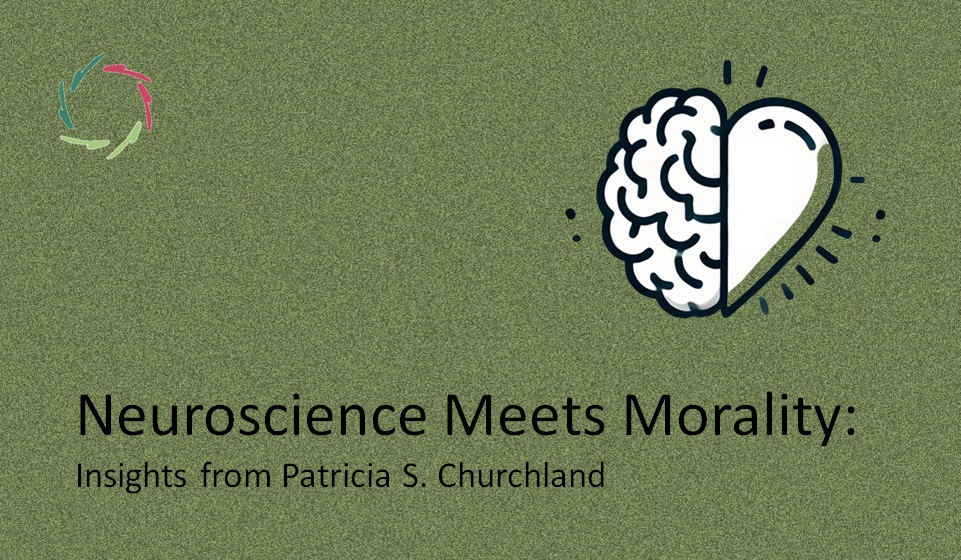
Neuroscience Meets Morality: Insights from Patricia S. Churchland
Patricia Churchland is a world famous neurophilosopher. Her works “Conscience: The Origins of Moral Intuition” and “Braintrust: What Neuroscience Tells Us about Morality” explore the neurobiological foundations of morality. After reading both books, Lisa gives in this blog her take on the main points, to which I fully agree. Churchland posits that moral behavior stems from Read the full article…

To Say that Abortion is Murder
is understandable. Human life is terminated by deliberate intervention. This is the definition of murder — as given by humans. The challenge rests in the phrase ‘by humans’ — highlighting it as a human construct. Recognizing this construct as human-made can open the door to more nuanced ethical discussions rather than assuming an absolute position. Read the full article…

Is Global Ethics Possible?
If so, can Compassion profoundly influence the development and acceptance of such a universal ethical framework? Cultural ethical diversity At the core, humans share a vast amount of psychological and genetic similarities. This commonality suggests that a foundational level of global ethics is feasible. At the same time, the diversity of cultures presents a rich Read the full article…

Does Evil Exist?
Spoiler alert: It doesn’t — except within interpretation. There, in most cases, it’s mutual. The one (individual, organization, people) seen as Evil doesn’t usually see himself as such. Instead, he sees the other as such. ‘Evil’ also as in geopolitics The Axis of Evil, the war on terrorism, on drugs, or just any war… just Read the full article…
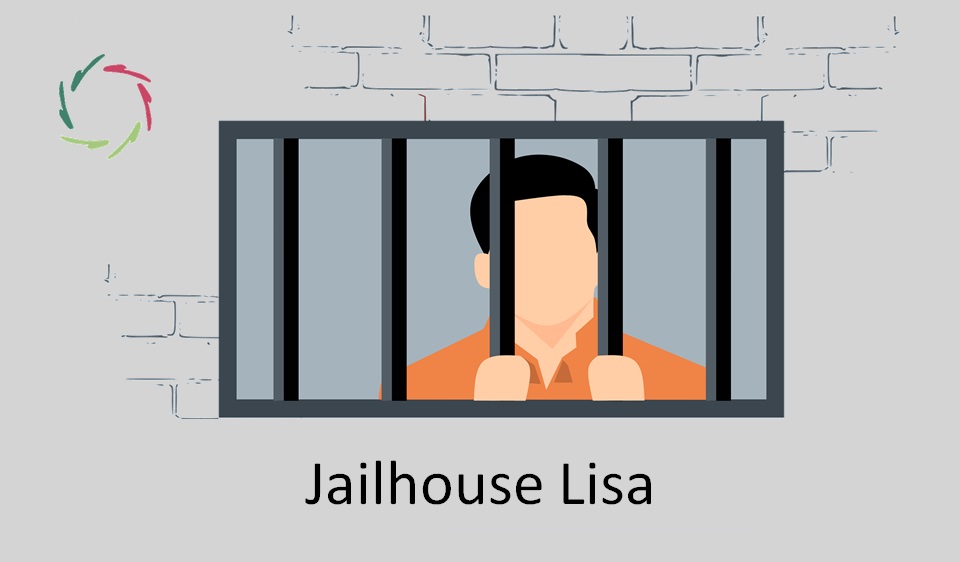
Jailhouse Lisa
Any in-jail Lisa coaching starts from the insight that morally bad behavior doesn’t originate in a Realm of Evil. There is always an understandable human setting behind any human action. Lisa in jail All convicts must have access to Lisa. At least, that is my view. Moreover, as a matter of fact, this access must Read the full article…
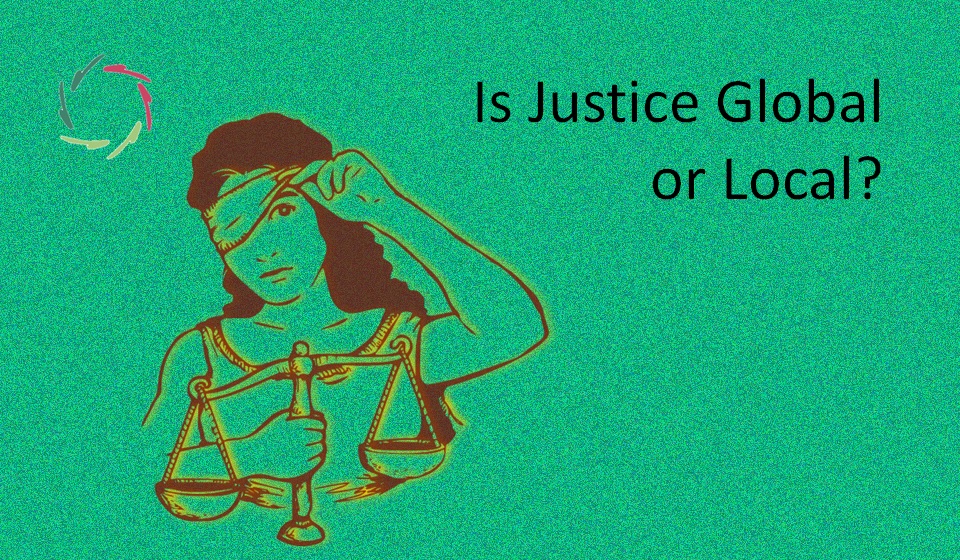
Is Justice Global or Local?
At present, concrete (‘positive’) justice is mainly local, while global Justice – as an abstract concept such as Love and Meaning – seems, to many at least, merely an afterthought. Meanwhile, is global Justice a driver or is it straightforwardly unimportant? Focusing on big-J Justice Is each small-character justice then a translation of big-J for Read the full article…

Who Needs Free Will for Moral Behavior?
“If there is no free will, I am not responsible for my actions.” I utterly disagree. Responsibility is not guilt. Without free will, you are not guilty. With free will, you are not guilty. Responsibility is something you can take within any circumstance. If there is no free will, then you can take responsibility within Read the full article…
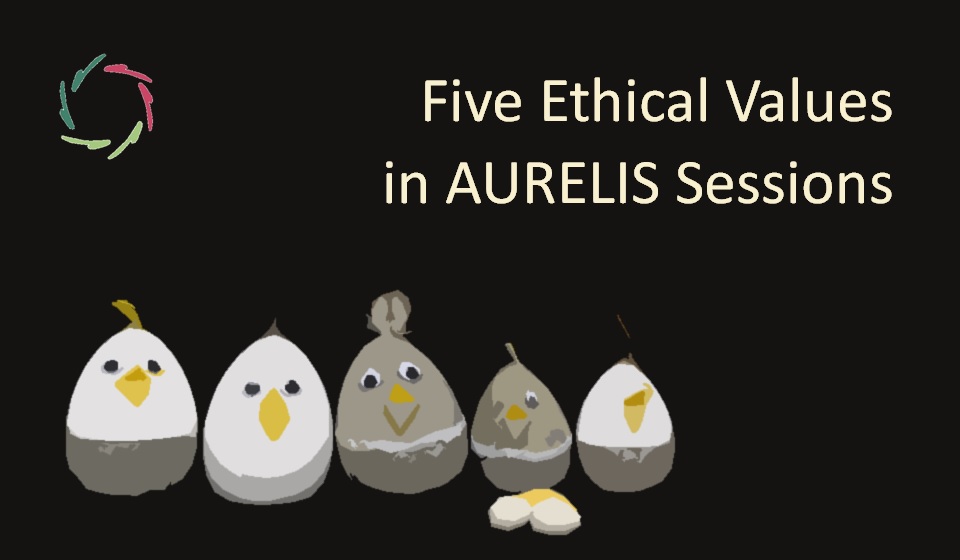
Five Ethical Values in AURELIS Sessions
These values can help you toward a deeper immersion in AURELIS sessions ― a crucial element of effectiveness. Ethics and effectiveness Generally, these seem two very different domains, even close to irreconcilable. This impression may stem from the fact that ethics is seen chiefly as the do’s and don’ts an individual needs to comply with Read the full article…

(Non-)Morality of Addiction
Addiction is frequently judged from a moral standpoint. This is scientifically unseemly. Moreover, it is contra-productive. The addicted person is not morally bad in being addicted. An addicted person is, by definition, not a free person. His addictive behavior is not free behavior. Thus, by definition, he cannot be a morally bad person. [see: “From Read the full article…

What about Conscience?
At first, I see conscience as part of the ‘natural you.’ Then it can become occupied by cultural rules and regulations. The way one handles this can be either Compassionate or precisely not. This is an excerpt from [see: “The Journey Towards Compassionate AI.”]. Conscience as a concept is – don’t be surprised – hard Read the full article…

Ethics is YOU
That is: eventually and with all relevant support. Different kinds of ethics Some see the basis of ethics in a general principle: “Do to others as you want that others do to you.” Others see it in some kind of authority: “The ten commandments.” Others see it in an agreement between humans: “Human rights.” … Read the full article…

Why Death Penalty is Murder
Taking into account full human being, there is no relevant difference between the accused and the accuser. ‘Taking conscious human life’ This is a quite good definition of murder. In case of the death penalty, it’s murder with full premeditation. In ‘taking,’ one can see a relevant fuzziness which makes thinking about, for instance, euthanasia Read the full article…
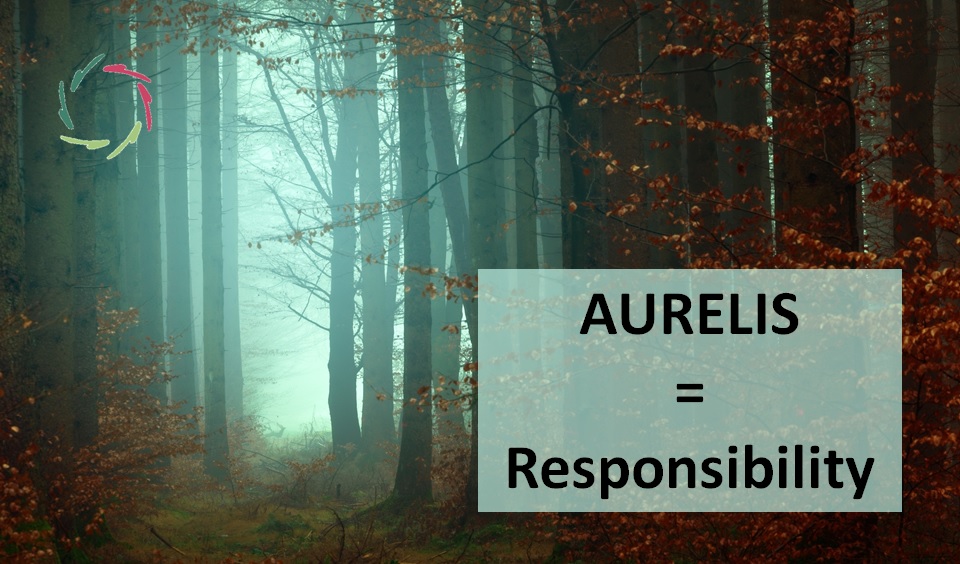
AURELIS = Responsibility
Every aspect of AURELIS intends to make you freer, therefore more responsible. Not guilty Please read this other blog first. It’s important: [see: “Always Responsible, Never Guilty”] Many times already, I pointed towards aspects of responsibility that come together with AURELIS. Indeed, gaining insight into the human ‘total being’ also brings more opportunities to influence Read the full article…

Sowing Hatred
Sowing hatred leads to aggression and more hatred. An additional problem is that this happens mainly through subconceptual ways. So to speak, ‘underground.’ Like in nature, seeds that you sow develop underground in such a way that a lot has happened before one can see the result appear above the ground. With the seeds of Read the full article…

Law and Intention!
People are important. Intentions are present within people. Laws are not. The law [Please read before this: ‘X or not X, versus: X or Y’] Something parallel can be seen in many domains, such as in anything related to the law (on freedom of speech or anything else). Mind: this is NOT about following or Read the full article…

ACE towards the Making of a Better Person
ACE (Adopt-Combine-Enhance) is a nice instrument, guided by a synthesis of rationality and poetry. [see: ’ACE in a Moral World‘] The making of No engineering stuff. We are nature. The ‘making’ lies in the support of nature to further itself from inside out. Morality lies in the direction of this support within our natural constraints Read the full article…

From Me to Morality
From inside the brain to very large groups of people, this text tracks the origin of morality through the ages as well as at any single point in time. Morality is like the Nile Searching for the ‘source’ finally gets one somewhere far inside a strange continent, where one doesn’t find one source but many. Read the full article…

Morality is NOT the Suppression of Self-Interest
A group can not endure for long if its members all just do their own thing. So, what’s the problem? The reasoning in favor of suppression is simple. This is about what is called the ‘free rider’ problem. In the course of ages, our ancestors and even pre-ancestors (‘hominids’ and before) learned the advantages of Read the full article…

From Aggression to Efficiency
A link between aggression and efficiency is not frequently made. I hope that at the end of this text, this will be remedied. Whence cometh aggression? It seems to be as old as, well, much older than humanity. Even so, one might argue that ‘animal aggression’ is in most cases functional, thus more ‘humanly understandable’ Read the full article…

Nature and Nurture of Morality
Evidently, there is nature and there is nurture. Much less evident is how they relate to each other. Nevertheless, we can learn and take appropriate action. A mollusk has no morality because it’s pure nature. No nurture, very small degree of freedom. Obviously. What the mollusk teaches us is that ‘morality’ starts where hardwired structuring Read the full article…

Towards Universal Empathy
Universal empathy is a moral stance that may solve the in-group >< out-group problem. [‘further on ‘In-Group Creates Out-Group?’] “How numerous the living beings may be, I pledge to liberate (from suffering) them all.” This is one of four Buddhist ‘vows of the Bodhisattva.’ Not being an adept of Buddhism, I find in it a Read the full article…

In-Group Creates Out-Group?
One frequently encounters the idea that a group gets formed by building defensive walls against other groups. Is this the best way? People are groupish. This is: we like to ‘be in a group’. Yes, with quote signs, because the group may be of very diverse kind. For instance, it may be quite abstract: a Read the full article…

Delayed Gratification, No Frustration
The ability to delay gratification is important in any well-functioning society. Can it be fostered with little frustration? Western culture evolves towards a cult of ‘immediate gratification.’ Is this healthy? Marshmallow In a 1960s experiment at Stanford, a number of kids got one marshmallow and could get three if the child wouldn’t eat the one Read the full article…

Moral Motivation
If morality doesn’t lead to action, then what’s the use? Let good people do good things. How? I guess the doing should not be the focus of an additional endeavor. It should be part and parcel of the moral communication itself. For instance, telling a child what is moral behavior, should deeply touch the child Read the full article…

ACE in a Moral World
ACE: Adopt – Combine – Expand. This is a recurring pattern that I see in many domains. It’s also specifically relevant in morality. I invented the acronym ACE a few weeks before writing this text while looking at many patterns and recognizing this underlying blueprint. So, please remain skeptical. Nature is a tinkerer, not an engineer. Read the full article…

Collective Morality
This is not about any concrete ‘habits and rules of moral behavior.’ Collective morality is about the thinking about such habits and rules. It should be based on rationality as much as possible. This rationality should be founded on two endeavors as always when rationality is optimally exercised: taking into account as much as possible Read the full article…

Morality VERY Broadly
Medicine, education, judicial system… morality is relevant not only towards any direct purpose but also in how things are done. This may be seen as the deeper purpose. VERY? Morality being about ‘relief of suffering’ – of oneself and others [see ‘Morality Is the Relief of Suffering’] – it is relevant in many domains, including Read the full article…

What Is Morality to A.I.?
Agreed: it’s not even evident what ‘morality’ means to us. Soon comes A.I. Will it be ‘morally good’? Humans have a natural propensity towards morality. Whether we tend towards ‘good’ or ‘bad’, we have feelings and generally recognize these in others too, in humans and in animals. We share organic roots. We recognize suffering and Read the full article…

Burn the Flag. Disobey the Law. Criticize Your Group.
Dear reader, please bear with me on this journey Or don’t. But if you do, then it may be apparent to you that anything about these three is ‘relative’. And even that is relative. In reverse: not giving into them can be very profoundly a symbolic action. For instance, the flag is just a piece Read the full article…

Respect Has Many Faces
which are all related to a sense of morality: respect for the group, for authority, for human suffering… and also respect for ‘me’ which can be ego or total self. Delving towards ‘oneness’ The more one delves into human issues, the more one gets the feeling that everything is related. The deeper one goes, the Read the full article…

Authority?
‘Authority’: a word that divides many, may bring many back together. Not as a matter of fact though. The situation and an appeal to some caution Authority can be seen as always personal. For example, the ‘authority of scripture’ is the authority of those who command scripture to be authoritative. To some, ‘authority’ is nothing Read the full article…
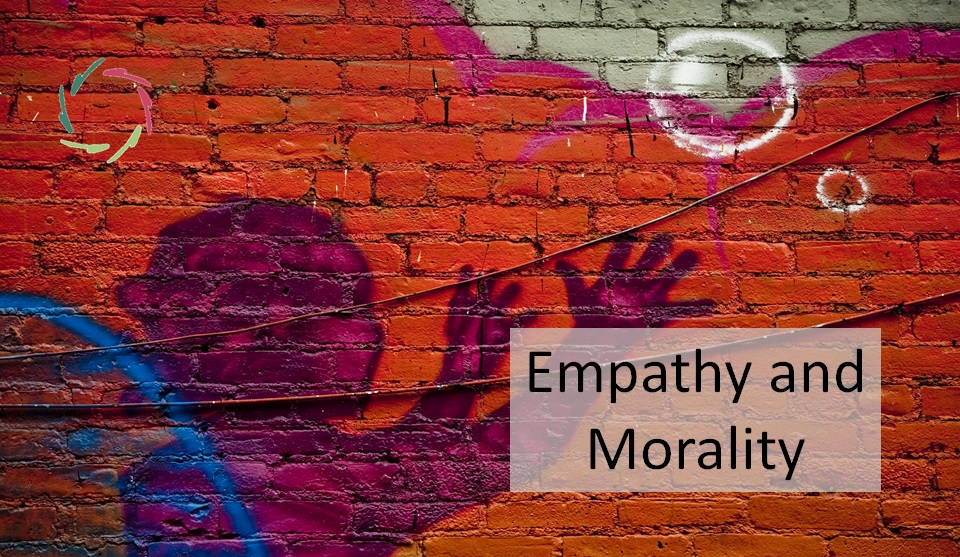
Empathy and Morality
I (yes, I) contend that morality of a really human kind is basically based on empathy. Rationality is its servant. [This text is a continuation on ‘Landscape of Empathy’.] One may recognize a quote from the Scottish philosopher David Hume (1711-1776) “Reason is, and ought only to be the slave of the passions, and can Read the full article…

Inside Values, We Find Pain and Joy
In our values, we find our worth and deepest meaning, our ‘energy’ which is no more than deep motivation. Our values are our morality. Valued gain for pain and source of joy. Inner values lead one to voluntarily accept pain. For instance: the soldier fighting for his country, the mother giving birth, the athlete going Read the full article…

‘Doing Your Best’ is Good Enough
The title of this piece can be seen as a ‘categorical invitation’, an (auto-)suggestion to strive and keep striving and at the same time not ego-wisely strive at all. The goal is to be human. People do not act morally consistent much of the time. An often used example is about a natural disaster striking Read the full article…

Five Aurelian Values
Since AURELIS is about rational depth, ethics is important. This comes in the guise of 5 ‘aurelian values’: openness, depth, respect, freedom, trustworthiness. Starting from the total human being as measure of morality, there is of course nothing sacred in these five. It’s a very subjective choice. In principle, it could have been five others, Read the full article…

Let True Morality Stand Up!
Basically, two ‘moralities’ can be distinguished: cognitive (thinking) and emotional. However, this is a purely conceptual, abstract distinction. Reality consistently shows them intermingled. The relevance is enormous. ‘Morality’ is the basis of culture. Almost all important decisions carry within them a factor of morality, or better: moralities. ‘Stress/distress’ is in all cases related to an Read the full article…

Morality Is the Relief of Suffering
Suffering is here broadly looked upon as: any hurt related to the loss of contact with one’s inner being. In this sense, relief of suffering of others and of oneself go together. (This text has a quite Buddhistic inspiration. The aim is to be applicable for all, always, everywhere.) In one sweep, the title of Read the full article…

Do Not Turn the Other Cheek…
… unless you think it’s worthwhile. I have a lot of respect for other-cheek-turners. If however, nothing gets learned from it, one may keep turning cheeks indefinitely. If someone slaps you on the cheek, then I think that it’s better to look at that person than to turn your gaze away while offering the other Read the full article…

Two Racisms – One Way Out
At the surface, racism is simply about a feeling of superiority over people from another race or ethnicity. Here ends the easy part. Why do people rank other people as inferior or superior based on inherited characteristics, be it visible in color or anything else? With due respect to those being racially discriminated, I want Read the full article…

Is Man Morally Makeable?
Is Man Morally Makeable? IF there is a moral standard, can man be made to approach it? For instance, can one be made into a ‘good leader’? [Man or woman. I just love the alliteration.] For many centuries of course, this has been a main goal of education: to make humans into ‘better humans’. This Read the full article…

Morality in Healing
The morality of healing lies in becoming a whole – healed – person. An in-dividual = un-divided. Ethics is involved in healing. Not only in why and how, but in the actual healing itself. This would not be the case if healing were always as simple as attaining a prior state of health. But since Read the full article…

About Tolerance
One cannot be tolerant to something one doesn’t know. So first comes Listening. Otherwise ‘tolerance’ can be quite in-tolerant. “You must be tolerant.” is of course a paradox. Is tolerance then selective? It appears to be so. You could even define tolerance as being intolerant to intolerance. There is – at first sight – no Read the full article…
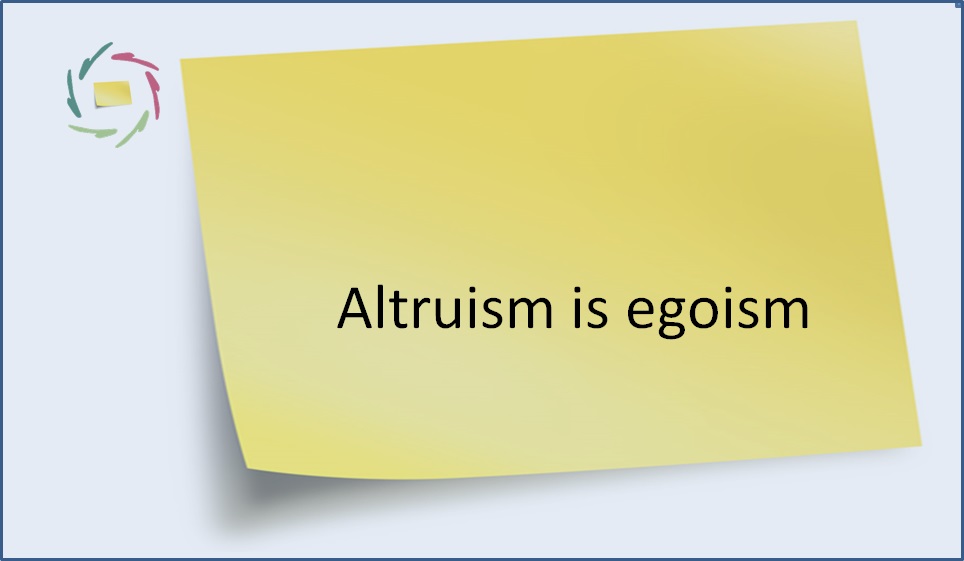
68. Altruism is egoism
Have you ever heard of the Samaritan paradox? Some ‘scientists’ find samaritanism (just doing something for someone else) a very weird phenomenon because it doesn’t fit the so-called biological premise of me-first (including we-first for a group). They look upon any derivation of me-first as either having a hidden agenda or being an aberration, something Read the full article…
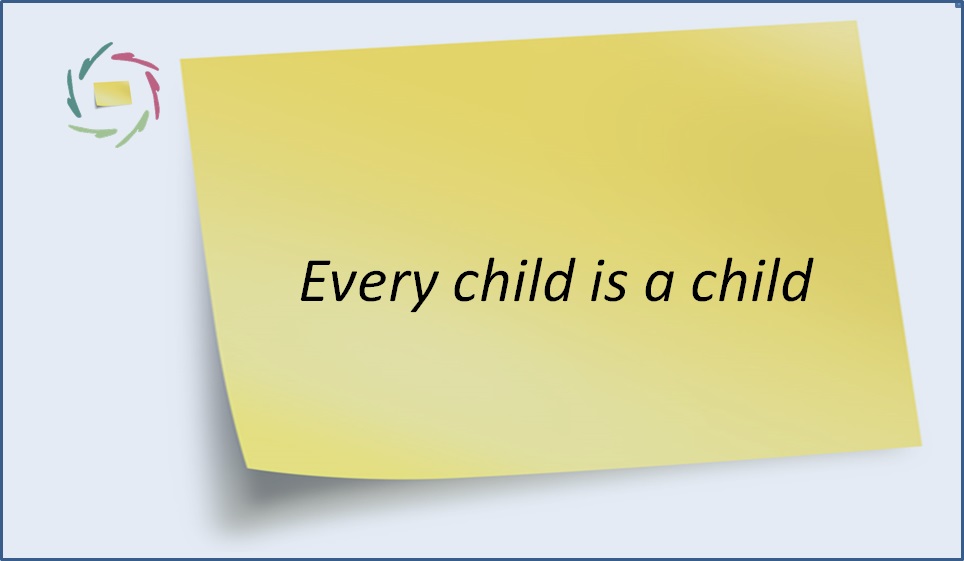
65. Every child is a child
An event that changed my life, at least my thinking about it, happened in Brazil. It’s already a while ago. I was still a medical student at that time and had the opportunity to work in a hospital in a shantytown (a ‘favela’) of Salvador Da Bahia for some months. Parents came there with their Read the full article…

Lady Justice’s Blindfold
Will in the future all criminals be seen as in need of coaching rather than punishment? Lady Justice, also known as Themis in ancient Greece As a goddess, she didn’t need a blindfold. She could see everything anyway. Themis also didn’t have a sword (of punishment). Both were added in the 15th century. The blindfold Read the full article…
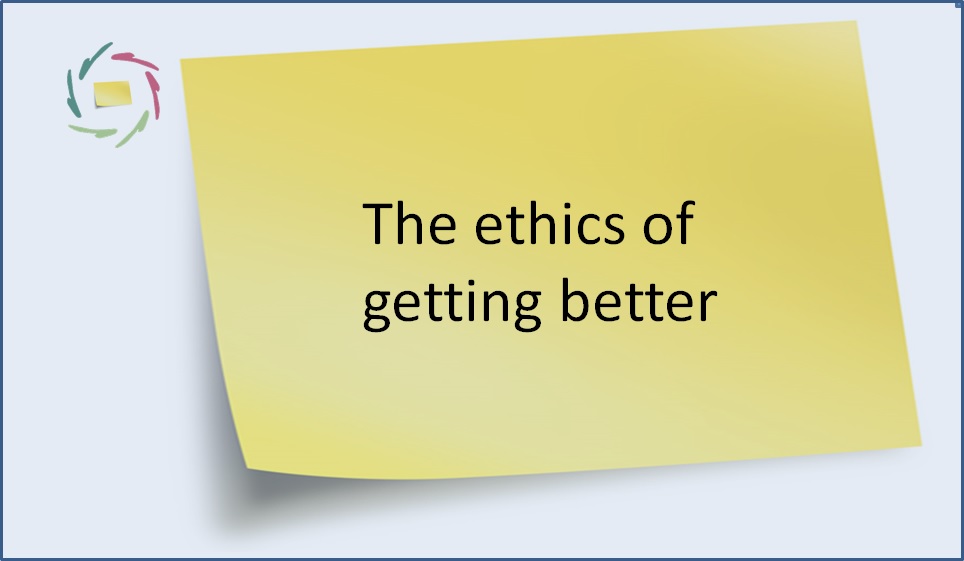
21. The ethics of getting better
It’s already present in the terms: ethics is about ‘being good’, ‘getting better’. Medicine, the beloved art and science of ‘making better’, has always been involved in morality though in the last few centuries of Western cultural development, in a very hidden way. In times not so long gone, illness was explicitly seen as ‘curse Read the full article…

From Deep Meaning to Post-Capitalism
We seem to be stuck in capitalism, yet capitalism itself seems to be stuck. Can ‘deep meaning’ help us to get beyond? Monetary values are measurable. For pure-capitalism (!) to work perfectly, everything needs to get a value that is measurable, comparable, thereby making the valued thing tradable. The most abstract trade is of course Read the full article…